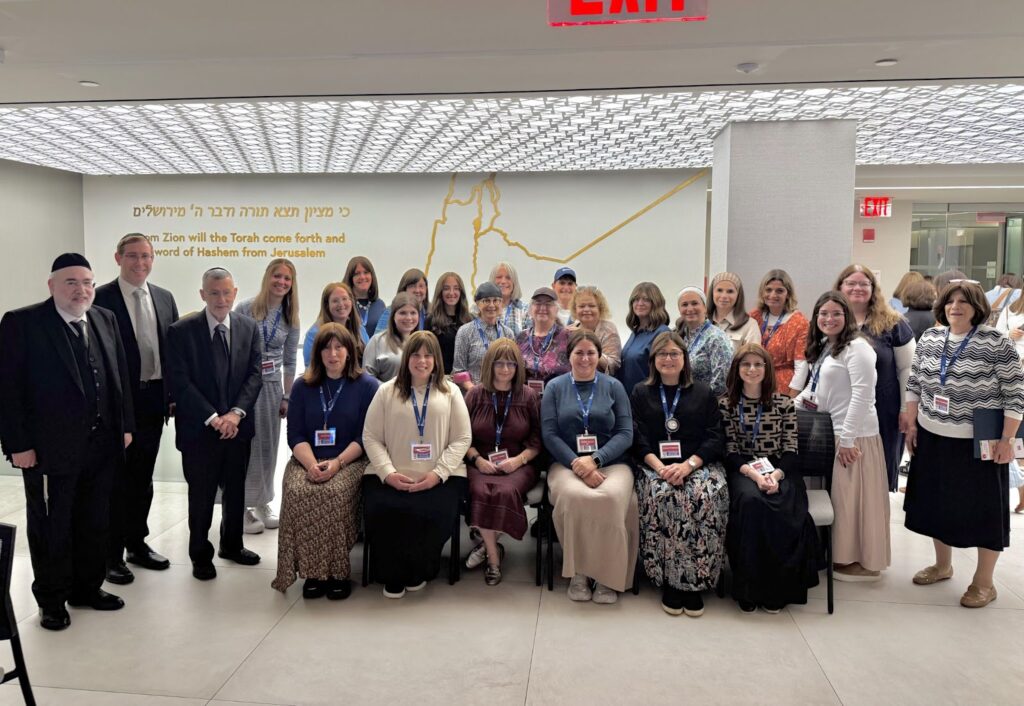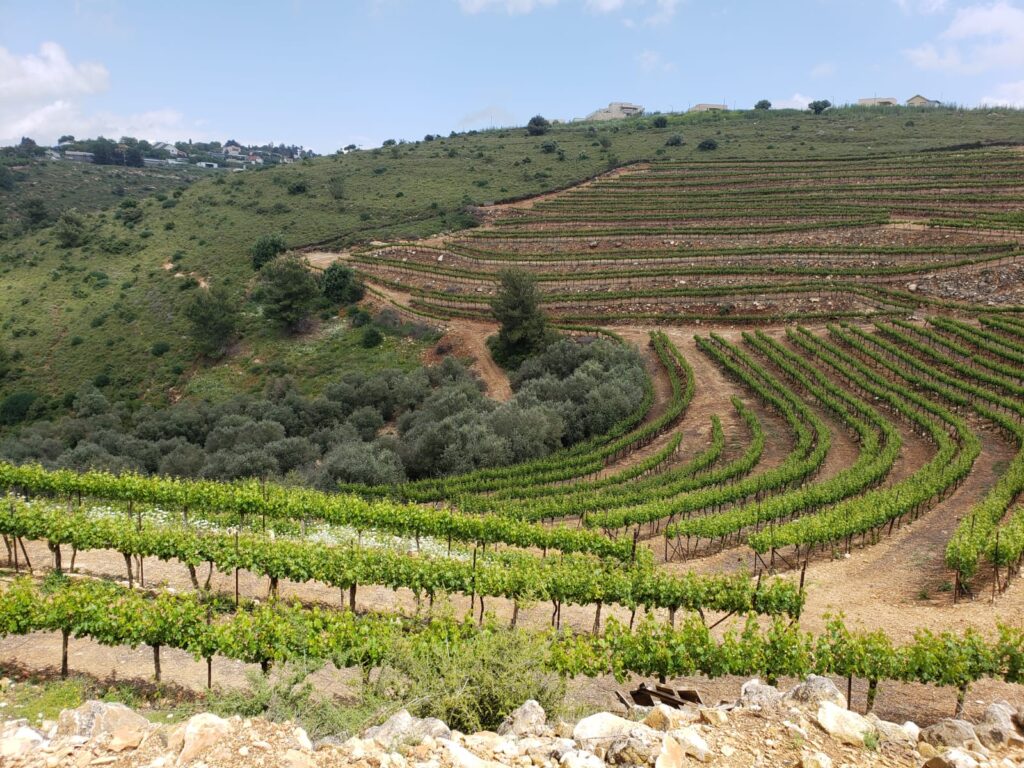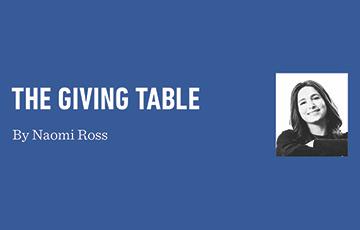OU Kosher’s Women’s Seminar Offers Deep Dive Into Kosher Certification
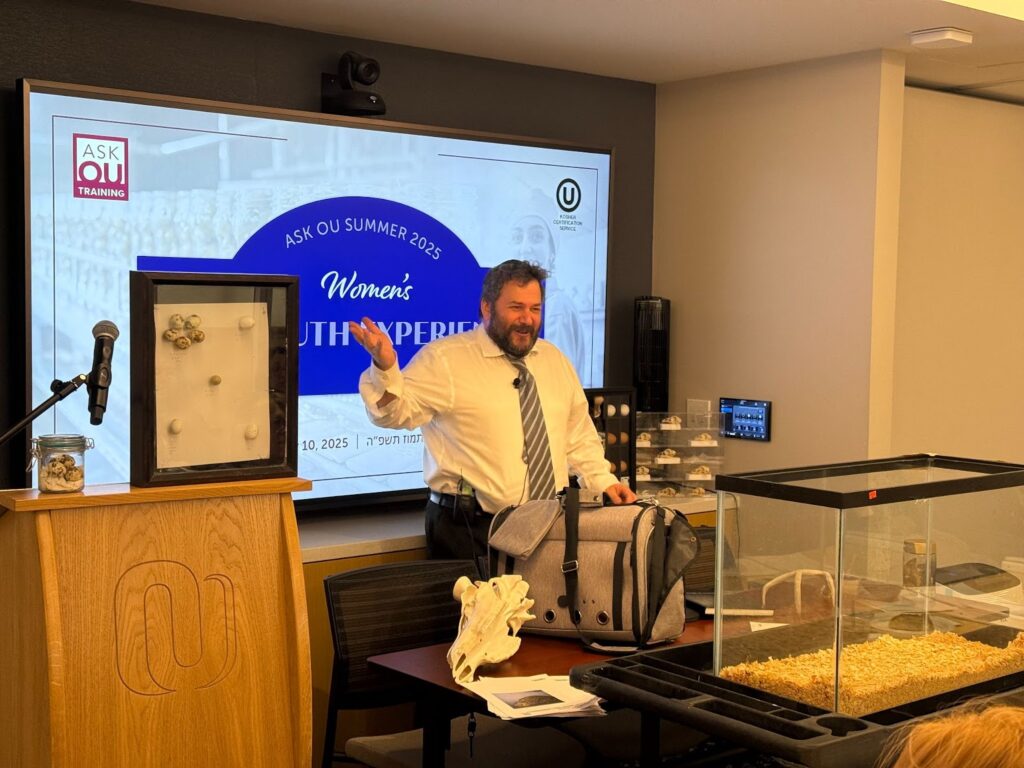
Kosher Rabbinic Coordinator and Bird Expert Rabbi Chaim Loike explained the process of identifying kosher eggs and fowl
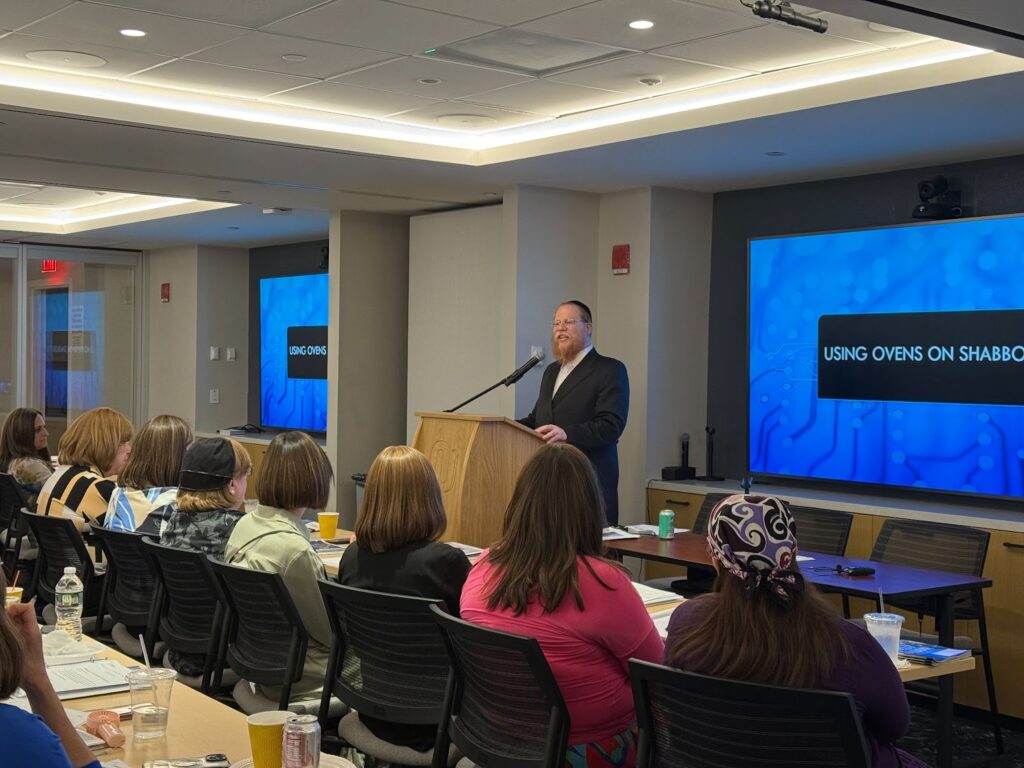
OU Kosher Director of Halacha and Technology Rabbi Tzvi Ortner presented a workshop on the halachos pertaining to Shabbos appliances
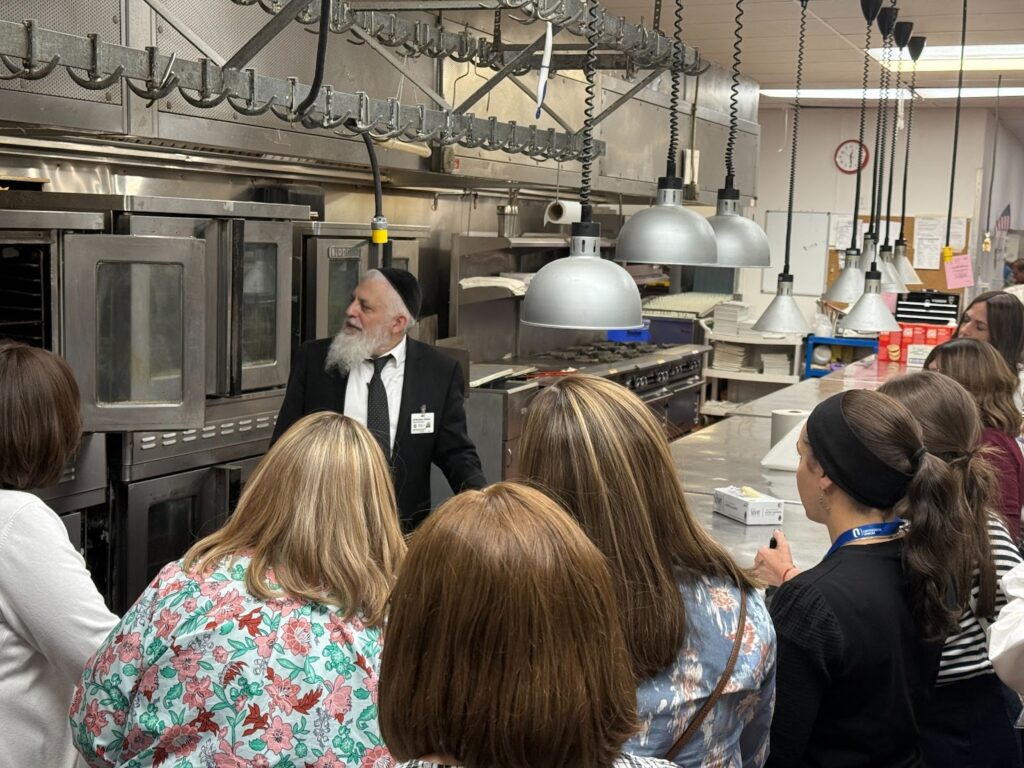
OU Kosher Rabbinic Field Representative and Kosherization Expert Rabbi Moshe Perlmutter gave a guided tour of the Rockleigh Country Club kitchen
As a cooking instructor, personal chef, 5TJT columnist, and author of The Giving Table cookbook, Naomi Ross of Woodmere, New York, has been well-versed in recipe development and food preparation for years. Thanks to a recent weeklong OU Kosher seminar, the Jewish Action contributor can add “kashrus industry insider” to her growing list of credentials.
Ross was among 50 participants of the ASK (Advanced Seminars in Kashrus) OU 2025 Summer Women’s Kashrus Experience, a weeklong program at the OU headquarters in Manhattan, which offers a behind-the-scenes look at kosher certification. Through hands-on workshops and visits to production facilities across the Tri-State area, participants gained a deeper understanding of the complexities of modern kashrus in sessions led by OU Kosher’s world-class rabbanim, poskim, and administrators.
“I really appreciated the opportunity to explore the industry side of kashrus more closely,” says Ross, reflecting on what prompted her to join the program. “Since I primarily teach home cooks, it felt especially meaningful to bring these insights back to other women—the gatekeepers of kashrus in the home. What was so powerful was that, despite coming from many different backgrounds, everyone expressed a shared desire: ‘We just want to learn.’ It was such an enriching experience.”
OU Kosher, the force behind the program, is the world’s largest and most widely recognized kosher certification agency, certifying over one million products manufactured in 13,000 plants, in 106 countries.
The women’s program reflects OU Kosher’s broader educational mission—to make the complexities of kashrus more accessible and relevant to a wider audience.
“Everyone deserves to understand what goes on behind the scenes in kashrus,” notes OU Kosher Managing Director of Community Relations Rabbi Eli Eleff. “While we all purchase kosher food, host kosher events, and dine in kosher restaurants, many people aren’t aware of the intricate processes involved in kashruscertification. Women are often the primary decision-makers when it comes to maintaining kashrus in the home and planning simchas. The OU’s 2025 Summer Women’s Kashrus Experience offered them a valuable opportunity to deepen their understanding, assess the standards around them, and enhance the kashrus in their own lives.”
The initiative is part of the larger ASK OU umbrella, which has been shaping kashrus education for over three decades.
“ASK OU originally began as a three-week internship for semicha students, rabbanim, and avreichim to delve deeply into the halachic and practical aspects of kashrus,” explains OU Kosher Chief Executive Officer Rabbi Menachem Genack, who launched the program in the late 1990s with then OU Kosher Director of Kosher Educational Services Rabbi Yosef Grossman, z’l. “We later expanded it to include a weeklong track for men and women, offered in alternating years, to give broader audiences an inside view of how kosher certification works. Both programs continue to thrive, combining rigorous learning with engaging experiences.”
At this year’s Summer Women’s Kashrus Experience, Rabbi Genack reflected on the evolution of kashruscertification over his four-plus decades at OU Kosher, and addressed industry challenges including proposed regulatory changes in Canada that could jeopardize the future of commercial shechitah.
Other esteemed seminar leaders included OU Kosher Posek HaRav Hershel Schachter, shlita, who led a Hilchos Kashrus seminar; OU Kosher Chief Operating Officer Rabbi Moshe Elefant, who led an Ask the Rabbi session; and numerous OU Kosher rabbanim who presented on diverse topics, such as Kosher 101, Keeping Your Kitchen Kosher, Shabbos Appliances, The ABCs of Eating Out, Common Chicken Shailos, The Mesorahof Birds, Pas Yisroel and Hafroshas Challah, and Contemporary Yoshon Issues.
Ross was particularly struck by the scope of expertise among the OU Kosher staff. “OU Kosher literally has an expert in every field—including birds, technology, and kashering appliances,” says Ross. “It’s truly remarkable. Each rabbi summarized both the halachos pertaining to their specialty and their practical application in modern times. The program gave me valuable insights that I can apply both in my own kitchen and in my work with clients.”
From a leadership standpoint, Rabbi Elefant is proud of the exceptional knowledge base and strong team cohesion that drives their work.
“The breadth of our staff’s knowledge—both in halacha and food production—is unparalleled worldwide,” he says. “Our OU Kosher rabbanim come from many different backgrounds, yet they share a remarkable unity and genuine camaraderie. This harmony stems from a single, shared mission: to uphold and bring the highest standards of kashrus to the world. It’s truly beautiful.”
Estie Siegal, of Chicago, Illinois, learned about the ASK OU Summer Women’s Kashrus Experience from a friend who had previously participated and was eager to gain insight into the complexities behind kosher certification.
“In his session Beyond the Label: What It Takes to Ensure Kashrus, OU Kosher Senior Rabbinic Field Representative Rabbi Avraham Stone shed light on the behind-the-scenes challenges mashgichim face—many of which are not immediately apparent. He emphasized that to be an effective mashgiach, one must also understand the business side of food production, since shortcuts can sometimes be taken. I found it absolutely fascinating.”
Engaging field trips to New Jersey establishments including David’s Cookies and The Rockleigh Country Club, a wedding hall that often hosts Jewish weddings, complemented the workshops, allowing participants to see halacha in action and observe firsthand the challenges of maintaining kashrus in large-scale operations with high volumes of ingredients and food.
Participants also toured Aisle One, a kosher supermarket in Passaic, where they learned about the role of the local Vaad HaKashrus and took part in a hands-on session on bedikas tolayim (checking produce for insect infestation).
For Jill Kaminetzky of Boca Raton, Florida, this workshop was among the most impactful of the entire seminar. Deeply interested in kashrus—especially the proper checking of fruits and vegetables—Kaminetzky is passionate about sharing her knowledge with others.
“OU Kosher Rabbinic Coordinator and bedikas tolayim expert Rabbi Daniel Sharratt’s depth of knowledge in fruit and vegetable checking is remarkable,” reflects Kaminetzky. “What stood out most was that he didn’t just share information; he explained the reasoning behind each procedure, making it both practical and meaningful.”
Beyond the halachic instruction, procedural guidance, and practical insights participants gained throughout the week, what stood out most for many was the sense of unity that permeated the entire seminar.
“One of the highlights for me was interacting with so many different people spanning the Orthodox spectrum, including renowned rebbetzins,” says Siegal. “I thought I was unique, coming in from Chicago, and then I met a participant from London, England, and others from Florida. There was such a strong feeling of growth and unity the entire time.”
For her part, Kaminetzky says she’ll enthusiastically recommend the program to others. “It was incredible to see how the OU, as such a large operation, maintains its standards across all areas of kashrus,” she says, “and to gain a deeper understanding of the dedication and expertise that make it a leading authority in the field. The program was exactly what I was looking for.” n
{jscreen and Manischewitz Join Forces and Launch ‘Deli is In Your DNA’
{IMG jscreen and Manischewitz’s Deli is in Your DNA-7
{Caption Deli is in Your DNA
jscreen, a national non-profit public health initiative dedicated to preventing Jewish and other genetic diseases, announces a meaningful partnership with Manischewitz, the leading kosher family brand with a rich history spanning over 120 years. This collaborative effort, entitled ‘Deli is in my DNA,’ aims to raise awareness about the importance of genetic screening for family planning and prevention of hereditary cancers. The initiative highlights the risks specific to Jewish genetics and how genetic testing can help save lives.
The launch is timed to coincide with the ‘Back to School’ season, with a primary focus on college campuses where students are offered genetic testing to help ensure the health of their future families. Additional events and activities will continue throughout the year to engage young adults and families in communities across the country.
September also marks Tay-Sachs Awareness Month, a time dedicated to educating the public about Tay-Sachs disease—a rare, inherited disorder that destroys nerve cells in the brain and spinal cord. Tay-Sachs is more common among people of Ashkenazi Jewish descent and typically presents in infancy, leading to severe physical and mental deterioration and ultimately early death, often by the age of five. There is currently no cure. Tay-Sachs Awareness Month underscores the critical importance of genetic screening, especially for those in high-risk populations, to prevent the transmission of this devastating condition to future generations.
Over the years, jscreen has built strong relationships with student groups on college campuses through on-site genetic screening events and partnerships with organizations that connect with younger and broader communities. During these particularly challenging times for the Jewish community, Manischewitz has joined forces with jscreen to support students and other individuals at screening events by providing care packages with kosher comfort foods and co-branded “Deli is in my DNA” T-shirts and sweatshirts.
Select events will also feature the “Manischewitz Deli on Wheels,” a new traveling restaurant serving food and distributing swag. Manischewitz food items provided at events will include matzo ball soup, hot dogs, knishes, rugelach, babka, and more.
Events on the schedule include: AEPhi convention in Maryland; ZBT convention in New Orleans; Tu B’Av White Party in New York City; HIGA conference in Boston; JGO conference, as well as screening events at colleges such as Yeshiva University and Stern College. Events will continue throughout the year.
Now in its 12th year, jscreen simplifies genetic screening by providing access to at-home saliva kits. Jscreen’s reproductive carrier testing empowers individuals and couples with comprehensive insights into their genetic makeup and the risk of having a child with a genetic disease. If an elevated risk is identified, genetic counselors offer private consultations via phone or video conferencing to help families plan for healthy futures.
“We are proud to launch the ‘Deli is in Your DNA’ program with Manischewitz and to provide students and others with education and support,” said Karen Arnovitz Grinzaid, Founding Executive Director of jscreen.
“There is no better time than now to collaborate with jscreen to educate and reach college students, and people of all ages, about the significance of genetic screening for the well-being of this and future generations,” said Shani Seidman, CMO of Manischewitz. “We share the love of family and are proud to launch the ‘Deli is in Your DNA’ program to support genetic testing with comforting, nostalgic Jewish food. Manischewitz products are ‘comfort food for the soul,’ and what better time than now to nurture young people at screenings and help spread awareness for a healthier future?”
Visit jscreen.org/donate to support this important cause and contact sbender@bendergroupprcom if you would like a “Deli is in Your DNA” screening event at a location.
For more information about jscreen testing, visit jscreen.org. To learn more about Manischewitz, visit Manischewitz.com. n





